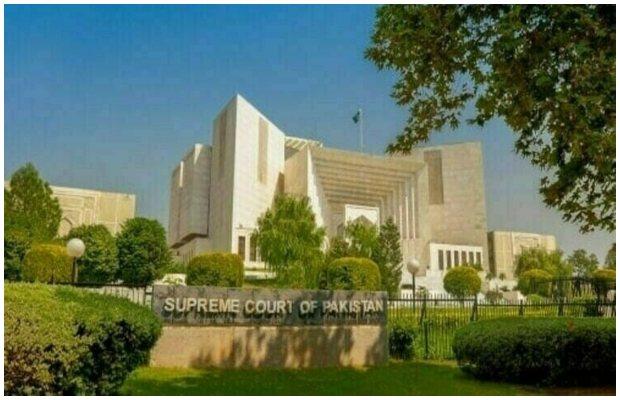Supreme Court reserves verdict on petitions challenging military trial of civilians
A five-member bench, headed by Justice Ijazul Ahsan, took up the case today.

The Supreme Court on Monday reserved a verdict on petitions challenging the military trial of civilians in the wake of 9 May mayhem following violent protests across the country after PTI Chairman Imran Khan’s arrest.
A five-member apex court bench — headed by Justice Ijaz Ul Ahsan, and comprising Justice Munib Akhtar, Justice Yahya Afridi, Justice Sayyed Mazahar Ali Akbar Naqvi, and Justice Ayesha Malik — heard the petitions filed by the Pakistan Tehreek-e-Insaf (PTI) chief Imran Khan and others on Monday.
The apex court reserved its verdict after Attorney General of Pakistan (AGP) Mansoor Usman Awan completed his arguments centered around the domain and scope of the military courts to try the civilians under the Army Act.
At the outset of today’s hearing, Attorney General for Pakistan (AGP) Mansoor Usman Awan said before the court that he would present arguments on why a constitutional amendment was not required in the case at hand.
“A trial in military courts fulfills all the requirements of criminal courts,” he said.
AGP added that the military trials of civilians had formally commenced. He said that the verdicts issued by the military courts would also detail the reasoning.
The AGP said that a matter concerning an attack on a restricted area or building could also go to military courts.
At one point, Justice Ahsan asked, “A constitutional amendment was required to try terrorists but not for civilians? I am trying to understand your argument.”
AGP Awan said that if the accused had a “direct link” to the armed forces, then a constitutional amendment was not required. He said that the suspects would be tried under Section 2(1)(d)(ii) of the Official Secrets Act.
AGP then noted that the court had raised a question about the framing of charges against the suspects.
“All the requirements of a criminal case will be met in the trial under the Army Act,” the AGP said.
Attorney General for Pakistan (AGP) Mansoor Usman Awan further said that the trial of the May 9 suspects would be similar to how it is conducted in criminal courts.
“The reasoning will be given in the verdict and the evidence will be recorded,” Awan added.
He said all the requirements for a fair trial under Article 10-A of the Constitution would be fulfilled. He said that appeals against the verdict could also be filed in the high courts and subsequently the apex court.
Justice Ahsan questioned about those who had been tried by military courts in the past. “Were the accused in 2015 civilians, foreigners, or terrorists?” he asked.
The AGP replied that the suspect included both nationals and foreigners. He said that those tried in 2015 also included those who facilitated terrorists.
Justice Ayesha also questioned the AGP on how he would connect his arguments with Article 8(3) of the Constitution.
“According to the law, a link to the armed forces is necessary [for trial in military courts],” Justice Ayesha said.
Justice Ahsan remarked that the Constitution protected the fundamental rights of citizens.






